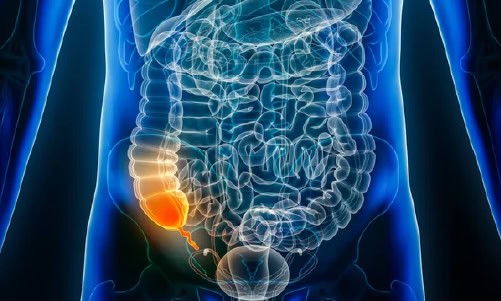Appendicitis, a painful condition caused by inflammation of the appendix, can lead to serious complications if left untreated. Complications include peritonitis, abscess formation, and even sepsis, emphasising the importance of prompt medical intervention.
If you're considering treatment for appendicitis in Faridabad, reach out to us, or book a direct appointment with our general surgeon. At the CK Birla Hospital, we are dedicated to ensuring that your appendicitis treatment is as safe, comfortable, and effective as possible. We're here to guide you every step of the way toward a successful recovery.

Appendicitis, though its exact cause often remains elusive, typically arises from an obstruction within the appendix. This obstruction can stem from various factors, such as:
However, numerous other conditions can also induce abdominal pain, necessitating thorough examination. Notably, appendicitis is an indiscriminate affliction, though certain demographics are predisposed, which are:
Understanding these factors aids in the timely recognition and management of appendicitis.
Untreated appendicitis poses several risks, like:
Prompt medical attention is vital to prevent these complications. Seek help if experiencing severe abdominal pain, fever, nausea, vomiting, or appetite loss.
Appendicitis presents in two main types:
Variations and Complications Include:
Appendicitis is deemed an emergency, necessitating immediate attention in the emergency room. Treatment typically involves a combination of medication and surgery, although, in rare instances, medication alone may suffice.
Medication
Surgery
There is no guaranteed method for avoiding appendicitis. However, adopting a diet rich in fibre may potentially reduce the likelihood of its development. While further investigation is necessary regarding the impact of diet, areas with high-fibre diets tend to experience lower incidences of appendicitis.
Examples of fibre-rich foods include:
Your doctor may also suggest incorporating a fibre supplement into your routine.
Imaging Tests
Preparation might involve fasting. Testing prioritises safety, considering risks like radiation exposure or pregnancy concerns.
The inflammation of the appendix, a little pouch connected to the big intestine, is known as appendicitis. It needs immediate medical attention since it is a medical emergency.
Symptoms of appendicitis typically include abdominal pain that starts around the belly button and moves to the lower right side, loss of appetite, nausea, vomiting, fever, and sometimes diarrhoea or constipation.
Yes, surgery to remove the inflamed appendix, known as an appendectomy, is the standard treatment for appendicitis. This is typically performed as soon as possible after diagnosis to prevent complications such as a burst appendix.
The advantages of laparoscopic/robotic appendicitis surgery over traditional appendicitis surgery are summarised below:
| Feature | Laparoscopic/Robotic Surgery | Open Surgery |
| Incision size | Small, keyhole incisions | Larger, single incision |
| Recovery time | Generally shorter | Longer |
| Postoperative pain | Typically less | Typically more |
| Hospital stay | Shorter (often same-day discharge) | Longer |
| Cosmetic result | Minimal scarring | More noticeable scar |
| Return to normal activities | Quicker | Slower |
However, the choice between laparoscopic/robotic and open surgery depends on individual patient factors and surgeon expertise. Each method has its own set of advantages and should be considered in the context of the patient’s overall health and specific circumstances.